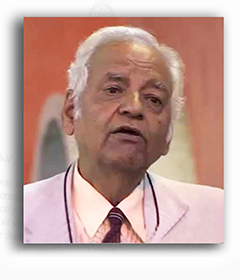Hari Dang (b.1935-d.2016), a brilliant mountaineer, educator and wildlife conservationist, worked as a journalist with the Statesman in Kolkata before joining the Doon School in 1959 as a chemistry teacher. In 1962, Dang was a member of the first non-Sherpa Indian expedition to Mount Everest, which was led by John Dias.
A charismatic educationist, he was the head and rector of schools including St. Paul’s in Darjeeling and Air Force Schools. He introduced the Duke of Edinburg’s Award Scheme to India, which now runs as the Indian Youth Award Scheme. He also served on various education boards and worked towards establishing model primary schools in rural, and tribal areas of India. His passion for the mountains led him to be a mentor and inspire many others who follow in his path. A wildlife enthusiast for 15 years, he was a member of the Indian Board for Wildlife.
Dang was awarded the Padma Shri in 1976 for his youth services. He wrote several articles on education, mountaineering and India’s wildlife.
About the Collection: The collection comprises digital copies of articles of Hari Dang broadly on three subjects, viz. wildlife, education, and mountaineering. These are on topics such as child labour, school admission, education policy, mountaineering challenges, expedition to Mount Everest, wildlife in the Himalayas, conservation of India’s wildlife, lesser known species, birds, etc. published in various newspapers, journals and magazines.




